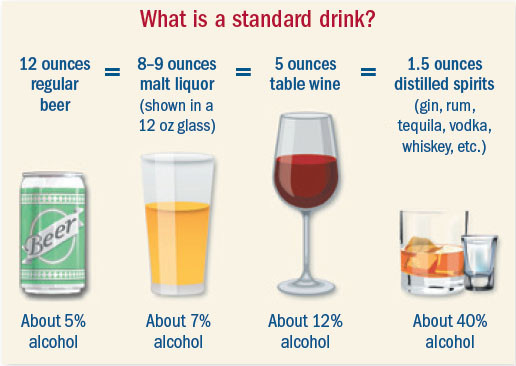Not for me. It lubricates my social outings which are going to prevent my descent into dementia. Anyway I am following this.
Part of my Hunter S. Thompson journey;
“Life
should not be a journey to the grave with the intention of arriving
safely in a pretty and well preserved body, but rather to skid in
broadside in a cloud of smoke, thoroughly used up, totally worn out, and
loudly proclaiming "Wow! What a Ride!”
Is it time to rethink how much you drink?
Contrary to popular belief, a drink or two per day might not help your heart, especially if you're over 65. Learn if, why, and how you should cut back on alcohol.

Moderation in all things may be sound advice in many situations. But when it comes to drinking alcohol, you might want to reconsider that stance. For one thing, the evidence that moderate alcohol use is good for your heart is fairly weak (see "Alcohol and your heart: What's the evidence?"). For another, many people have a poor grasp of what actually counts as "moderate" drinking. Finally, what constitutes a safe level of drinking can change over time, because alcohol affects your body differently as you age.
"In my experience, people's perceptions of what constitutes moderate drinking are not always accurate," says Dr. Monika Kolodziej, a psychologist who specializes in substance use disorders at Harvard-affiliated Mclean Hospital. People may stick to one or two daily drinks, but the actual volume of alcohol in their wine glass or tumbler is quite a bit more than they realize, she says. For some people, "one drink" may be 6 ounces of whiskey — which actually counts as four drinks. Many mixed drinks, such as martinis and margaritas, contain more than one type (and serving) of alcohol (see "What is a standard drink?").
Alcohol and your heart: What's the evidence?
Moderate alcohol use — defined as one drink or less
per day for women and two drinks or less per day for men — is often
promoted as beneficial for heart health. Those thresholds come from
observational studies showing that moderate drinkers tend to have lower
rates of heart disease. But these studies can't prove cause and effect.
Light-to-moderate drinkers tend to be educated and relatively well-off,
so they're more likely to have heart-healthy habits that may explain
their lower risk. In addition, nondrinkers may have underlying health
problems that led them to stop drinking, which can also confound the
results.
A study in the April issue of the journal Addiction
notes that recent large, multicountry studies have contested the
cardiovascular benefits of alcohol use, suggesting that the safest
amount of alcohol may be none. Even if light-to-moderate alcohol use
isn't a problem, occasional binge drinking (more than five drinks within
a few hours) reverses any possible protective effect, the authors note.
Drinking more than moderate amounts of alcohol on a routine basis can
raise blood pressure and also increases the risk of heart rhythm
problems such as atrial fibrillation. And chronic heavy drinking can
lead to a form of heart failure known as alcoholic cardiomyopathy.
|
Older adults and alcohol
Historically, experts have focused on alcohol's harmful effects on young people, whose brains are still developing. Now, they're paying more attention to the adverse effects of alcohol on the aging brain, says Dr. Kolodziej. With age, your ability to metabolize alcohol declines, so a drink or two in your 70s will raise your blood alcohol to a higher level than it did when you were in your 30s.In addition, older people tend to take more medicines than younger individuals do. Blood pressure medications in particular (such as alpha blockers, beta blockers, and nitrates) can interact with alcohol, potentially causing lightheadedness and dizziness from low blood pressure.
Older men should be aware that both the National Institute of Alcohol Abuse and Alcoholism and the American Geriatric Society recommend that starting at age 65, men limit their alcohol use to no more than a single drink per day.
Keeping tabs
If you drink — even only occasionally — Dr. Kolodziej recommends taking a few minutes to think about when you drink alcohol and why. Maybe your evening cocktail is simply a long-ingrained habit. Some people drink to relieve anxiety and stress or to fall asleep. While alcohol does help you relax, remember that alcohol is a depressant and can leave you less motivated to cope with stress in more effective, healthier ways, says Dr. Kolodziej. Also, drinking before bed often disrupts sleep later in the night — and poor sleep and stress both contribute to heart disease.The point is to be more aware of your habits and patterns. If you realize you're drinking more than might be healthy for you personally, current cultural trends make it easier than ever to cut back. "Alcohol is high in carbohydrates, and the recent low-carb trend means more people are avoiding alcohol," says Dr. Kolodziej.
The "sober curious" movement, which encourages people to drink less or no alcohol, has gained momentum in the past year or so. So has the popularity of low- or no-alcohol beers. You can even find nonalcoholic distilled spirits, which are used to make sophisticated "mocktails." Also, alcohol-free bars and social clubs are springing up in major cities.
Cutting back
If you're trying to cut back on your drinking, try these tips:Keep a drinking diary. Write down what and how much you drink for several weeks to get a sense of how much you usually imbibe.
Keep alcohol out of your house. This can help you to limit your drinking to restaurants and social occasions. (My bottles of wine are for taking to friends houses, I never drink at home.Well, Zoom wine parties now.)
Dilute and drink slowly. Dilute your wine or cocktail with sparkling water and ice.(You have got to be kidding?) Sip it slowly.
Drink only with meals. Never drink on an empty stomach.
Establish alcohol-free days. Choose a few days per week to abstain completely from alcohol.(I already do this)

No comments:
Post a Comment